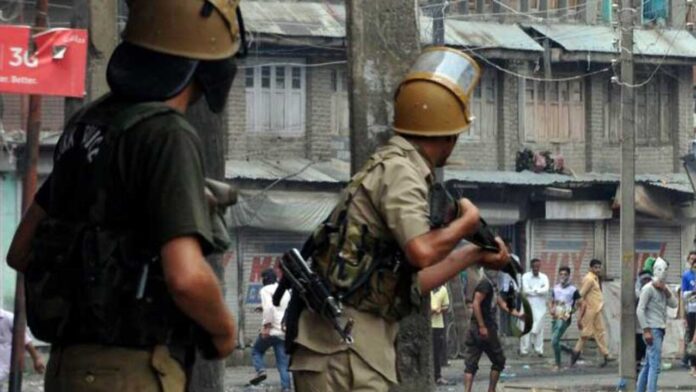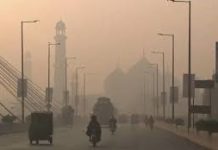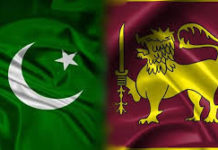Web Desk
Pakistan’s Foreign Minister Shah Mahmood Qureshi, along with National Security Adviser Dr Moeed Yusuf and Federal Human Rights Minister Shireen Mazari, on Sunday presented a dossier on war crimes and human rights violations in Indian-occupied Kashmir.
Addressing a press conference in the capital, Islamabad, the foreign minister pointed out that the decision to compile the dossier was taken due to the actions of Indian authorities after the death of Kashmiri leader Syed Ali Geelani and their treatment of his family.
“We decided that considering the situation there, (IoK) and the kind of government’s thinking present there, we should play our role and unveil the real face of this [India] government claiming to be the world’s biggest democracy before the world,” he said.
Qureshi said there was a continuing communications blackout in IoK as independent journalists and observers were denied access, while facts were distorted and brutalities went unreported “by design”.
The foreign minister said the dossier comprised 131 pages and had three chapters: one on war crime by the Indian army and its genocidal actions, second on the disappointment of Kashmiris and how a local resistance movement is being born despite the propaganda of everything being normal, and a third chapter on how UN Security Council resolutions, international laws and humanitarian laws were being violated through efforts to bring about a demographic change in the valley.
According to English newspaper, Daily Dawn, FM Qureshi pre-empted any concerns regarding the dossier’s credibility, explaining that the majority of the references in it were from international and Indian media outlets as well as international human rights organisations such as Amnesty International and Human Rights Watch.
Calling upon the media to examine it for itself, the foreign minister said the dossier contained details on a vast range of incidents and atrocities from war crimes, extrajudicial killings, arbitrary arrests, torture, pellet gun injuries, rapes, over 100,000 cases of children being orphaned, search and cordon operations, false flag operations, fake encounters and planting of weapons on innocent residents to implicate them and harm the resistance movement.
Foreign Office spokesperson Asim Iftikhar, while presenting statistics and figures from the dossier, stressed that there was a “great need” to make the world aware so that action could be taken to bring an end to the grave human rights violations in IoK.
“This dossier is a step in that direction,” he said. During his brief, Iftikhar pointed out that Indian patronage and training of the militant Islamic State group was a “serious concern”. He alleged that evidence suggested India was operating five training camps in Gulmarg, Raipur, Jodhpur, Chakrata, Anupgarh and Bikaner.
“By injecting these state-trained ISIS fighters, India may try to establish linkages of the freedom movement with international terrorism in order to malign the freedom struggle and to justify its own crimes as counter-terrorist operations,” he said.
Responding to a question on the dossier’s dissemination, Qureshi said it was being printed and sent to Pakistan’s foreign missions and multiple forums, and that every method would be used to achieve “maximum circulation”.
Moeed Yusuf, the NSA said: “My request would be to remember that this dossier and its timing are a tribute to Geelani sahab. His whole life was spent for this purpose (IoK’s freedom) but the struggle continues and we have to bring it to completion.”
FM Qureshi said protecting fundamental human rights was not just the state’s responsibility but there were international obligations, instruments and mechanisms to ensure their protection and that they should be fulfilled.
“The UN must compel India to allow access to special procedure mandate holders of the UN Human Rights Council for an independent investigation of human rights violations taking place in IoK,” he said.
“The UN department of peacekeeping operations must note the names of individuals and units in IoK who have been directly responsible for human rights violations. They should be identified, named and disallowed to be part of UN peacekeeping operations.”















